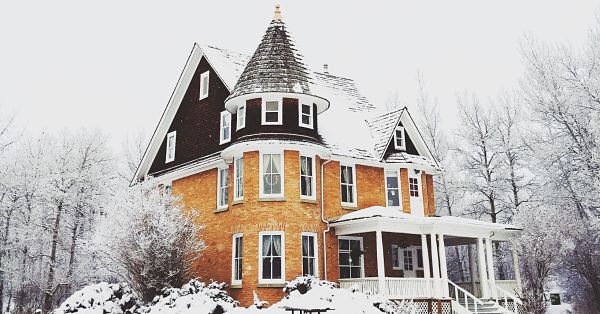
The reality of space and place is often lost on us as post-Enlightenment Westerners. We forget that where we are from, where we are currently, and where we are going all have a formative role on us as persons.
As Christians, you’d think we would be more aware of the importance of space and place on our formation. All throughout both the Old and New Testaments space and place play a key role in relation to the people of God. In addition to the promise of descendants, Yahweh also promises land to Abraham in Gen. 12:1-3. Sights like Shechem had formative, shaping power for the people of God (Gen. 12:6-7; 33:18-20; Josh 24:1-33, etc.), and New Testament authors like Luke place a heavy emphasis on the movement of the gospel through specific places in the book of Acts (other authors also emphasize place and spatiality).
True enough, after Pentecost, land is relativized in relation to the people of God. God and His people transcend ethnic and spatial boundaries (again, as authors like Luke show). However, Spirit-based transcendence of space and place does not eliminate the embeddedness of space and place in our lives. It orders them.
Where we are from, where we grow up, where we were formed; it all shapes us. It all sticks with us in one way or another. I was thinking about this reality the other day as I reflected on how I often miss my hometown. I was born and raised for the first 18 years of my life in Tulsa, Oklahoma. It is a medium-ish sized city of about 400,000 (the metro area population is just shy of 1,000,000). It was a great place to grow up.

I remember going out with my father to local parks, playing around on large rocks while he fished in a nearby pond. At the time the rocks seemed like mountains and I was embarking on a grand mountaineering expedition. Now, of course, they seem quite small.
I remember my mother taking me to her office and showing me around the cityscape of the downtown area, all the while I was marveling at the buildings which seemed massive at the time. I’ve seen far larger and far grander ones by now in cities like Boston, Indianapolis, Dallas, and Oxford. Several of the buildings in Tulsa are still impressive, but far from the intimidating monoliths of my childhood.
The city I grew up in seems smaller now that I am older and have seen more of the world.
And yet, for me, its beauty has only grown in my time away. It has been eight years now that I have lived away from Tulsa, from my family, and from my friends, though I’ve been blessed to be able to visit a couple of times a year.
In those eight years away I have learned and seen much. I am about to graduate with a Master of Divinity (M.Div.) and Master of Theology (Th.M.) in Biblical Studies. I plan to embark on doctoral studies in the New Testament (specifically in Pauline thought and theology) within a year after graduation.
And yet, I miss the place and the people that shaped me. In the midst of my eight years away I have never truly felt at home in any of the places I have been. From Stillwater to the Boston metro area to Wilmore, KY, they have all felt like stops along the road. Great and wonderful stops where I have made life-long friends to be sure, but stops nonetheless.
For a while, I thought that the best thing for me was to get away from my Oklahoman roots. Now however, there are days I long to be back in my home, with my people.
Space and place shape us. They imprint upon us their distinct characteristics. I would not be who I am today without the people and places of Tulsa; without the woods, fields, and lakes of Oklahoma. I wouldn’t be the Christian that I am today without my home.
Wherever I go in my life, whatever city, institution, or country I end up at or in, I will be marked by my strange and wonderful roots in Tulsa, Oklahoma. I don’t know if the longing for my home—the longing for a place where I really and truly belong—will ever completely go away. My guess is that this side of resurrection such a longing will never truly leave, as the passing and finitude of life itself makes us long for a home that will never fade.
However, the longing itself points toward something that is good. The longing for a place where we no longer feel alienated. The longing for a place where we know and are known. The longing for a place where we can dwell in joy.
For me that immediate longing is for the rocks I climbed as a child, while my father fished for perch. It is a longing for the journeys downtown with my mother to her office, eating a muffin I convinced her to buy for me at the café on the ground floor of her building. It is a longing for the time spent with friends going to the movies on a Friday night. It is a longing for those first pangs of what I thought was love for a girl I’d just met in high school (in find sight, it was just infatuation). It is a longing for a city that I felt I could call mine.
It is that longing for home that, in some ways, we all feel. A longing that points us even deeper still to a home that we will never lose and that will never fade.












